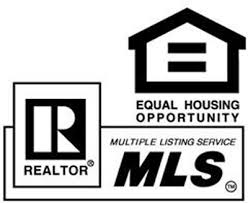Buying A Home in Idaho
MCCALL | DONNELLY | CASCADE | BOISE | EAGLE | MERIDIAN
Should I hire a Realtor when Purchasing a Home?
“I can make more money if I sell it myself!” You may have heard this statement if you know someone who is considering selling a home. Perhaps you’ve even said it yourself. After all, it sounds good. However, the process of buying a home is more involved than it looks, and what you don’t know could affect your profit.
Home Buyers Looking for a Deal
Many buyers who are looking at homes “For Sale By Owner” (FSBO’s) are looking for a deal. Sometimes these are the most difficult buyers. They immediately subtract 6% or 7% from the sales price because they know you aren’t paying a commission. They don’t want to pay either. You aren’t getting the service offered by a professional Realtor, plus, you aren’t getting the money.
Out-Of-Town Home Purchases
Out-of-town buyers typically don’t have the time to search the FSBO’s for a home. They are usually on a limited schedule and need to see as many homes as possible in a short period of time. Therefore, most out-of-town buyers look to a Realtor who is a member of a national relocation service. When you consider how many people are moving to our area, this point becomes even more important.
Time & Expertise in Home Buying
Do you really have the time to research the sales prices of comparable homes in your area so you can arrive at a fair price, advertise and show your home, do the buyer qualifying and negotiating, take care of any needed compliance work, as well as follow-up with the buyer, the title company, the buyer’s lender, the appraiser and your attorney? Realtors specialize in handling the details for you.
Security Risks involved with Buying a Home
How do you know to whom you are showing your home? How can you tell if the person at your front door is qualified or is safe to allow inside? Again, Realtors pre-qualify the buyers; they get to know him or her. In addition, the Intermountain MLS uses computerized lock boxes that keep track of which Realtor is in your home and at what time, thus enabling Realtors to show your home safely while you aren’t home, saving you not only time, but peace of mind. Realtors are subject to a code of ethics and have governing boards for grievances and disputes as well.
The Home Buying Process
If you are a first-time homebuyer or haven’t bought a home in a while, this guide will offer valuable information about buying a home.
Required Information when Buying a Home
Before you can buy a home, you will need to secure financing and qualify for a Home Mortgage. Be ready to provide a mortgage lender with the following information: your current income, your current employment status, and your employment history.
Putting a Down Payment on your Home
Your lender will ask how much money you have available for a down payment. A down payment of 20 percent or more of the home purchase price demonstrates your commitment to long-term homeownership and provides you with immediate equity in a new home.
Checking Credit History when Buying a Home
Your lender will review your credit history. They will review how well you’ve paid your bills in the past by reviewing your credit report. The lender will consider how much you owe on credit cards, car payments, student loans and other debt. The lender will also review your ability to pay property taxes and other expenses of homeownership.
Escrow Accounts
Your lender may suggest that you set up an escrow account. With an escrow account, you pay a fixed amount each month in addition to your mortgage payment to an account maintained by the lender. The lender then draws on that account to pay property taxes and homeowners insurance as those bills become due. Escrow accounts ensure that money will be available for these payments. Remember that you are investing not just in a home, but also in the mortgage loan that will finance your home. Talk with several lenders and shop carefully for the best deal, including loan terms, interest rate and fees. The lender you choose will review your financial information and explain the pre-approval process. While pre-approval is not a mortgage commitment or guarantee, it will provide guidance on what you can afford to spend on your new home. Having a pre-approval letter to show to a seller demonstrates that you are a serious buyer. When you are ready to buy, it will shorten the time it takes your lender to complete the mortgage application process. Make sure your lender explains all loan fees including the up front costs of originating, processing, and closing the loan.
Selecting your new Home
With your mortgage pre-approval in place, you are ready to begin your search. You can check online and your local newspaper for homes for sale in your area. A real estate professional can help you find a home that meets your needs and your budget. A licensed agent has access to the Multiple Listings Service (MLS) which generally offers the most comprehensive list of homes for sale.
Should I get a Home Inspection before Buying?
Exercise your right to ensure your satisfaction of the property that you are purchasing. Buyers should discuss professional inspections with the sales person prior to signing an offer to purchase. One of the contingencies in your purchase should be that you obtain a satisfactory building inspection report. You should want an expert to take a critical look at the property. Although you will pay for this inspection, it is well worth the cost in peace of mind.
A home inspection gives the buyer more detailed information than an appraisal. An appraisal will give you the information needed in order to make a wise decision. It is your responsibility to be an informed buyer. Be sure that what you buy is satisfactory in every respect. You have the right to carefully examine your potential new home with a qualified home inspector. You should arrange to have a home inspection before you purchase your home. Make sure your contract states that the sale of the home depends on the inspection. In a home inspection, a qualified inspector takes an in-depth, unbiased look at your potential new home.
The Home Inspection Process
During a home inspection, an inspector evaluates the physical condition of the Home. This includes reviewing the structure, construction, and mechanical systems. Items that need to be repaired or replaced are identified and an estimate is provided for the remaining useful life of major systems, equipment, structure, and finishes. The Inspector’s report will not include a recommendation as to whether or not you should buy the house, nor will it evaluate the purchase price. If major flaws are uncovered, it should give you some idea of what it will cost to repair or replace the problem. A reputable home inspector will never offer to perform needed repairs and should not refer you to a contractor to perform such repairs. Please be advised that professional inspections of the property are usually a service, and not a warranty. Warranty programs may be available through private companies and purchased apart from, or in conjunction with, private inspection.
FHA & Home Buyers
FHA helps people become homeowners by insuring mortgages for lenders. This allows the lender to offer mortgages to first-time buyers and other who may not qualify for conventional loans. Because the FHA insures the loan for the lender, the buyer pays only a very low down payment. FHA does not guarantee the values or condition of your potential new home. If you find problems with your new home after closing, we cannot give or lend you money for repairs, and we cannot buy the home back from you. That’s why it’s so important for you, the buyer, to get an independent home inspection. Before you sign a contract, ask a qualified home inspector to inspect your potential new home and give you the information you need to make a wise decision. As part of our job insuring the loan, we require that the lender conduct an FHA appraisal. An appraisal is different from a home inspection. Appraisals are for lenders home inspections are for buyers. The lender does an appraisal for three reasons: to estimate the value of a home, to make sure that the house meets FHA minimum property standards, and to make sure that the house is marketable.
Idaho Housing Tax
If you’re a homeowner, you may have some questions about the way your property is assessed. The assessed value of your home is part of the calculation of how much tax you pay. Assessments should be accurate so that all taxpayers pay their fair share of the total property tax. The ID Housing Tax Brochure that is linked below answers some of the most frequently asked questions about property assessment and taxes, including the Idaho Home Owners Exemption.









